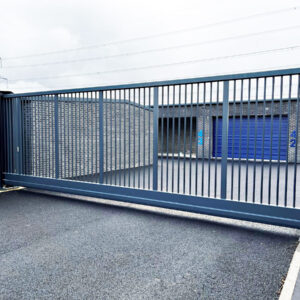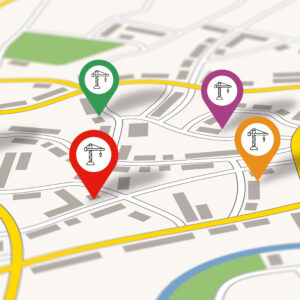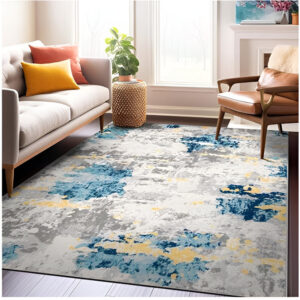Embarking on a solar journey in Dubai requires clear understanding of the process, realistic cost expectations, and proper planning. With DEWA’s streamlined Shams Dubai program and Dubai’s exceptional solar resource, homeowners can navigate solar installation confidently when armed with accurate information.
This comprehensive guide breaks down every aspect of solar installation in Dubai, from initial consultation through final grid connection, helping you make informed decisions while avoiding common pitfalls that can delay or complicate your solar project.

Understanding Dubai’s Solar Framework
Dubai’s solar installation landscape is governed by DEWA’s Shams Dubai initiative, which provides a structured pathway for residential and commercial solar adoption. This program ensures safety, quality, and grid compatibility while maximizing financial returns through net metering.
The emirate’s exceptional solar irradiation of 2,000-2,200 kWh/m² annually creates ideal conditions for solar energy generation. Combined with Dubai’s high electricity consumption patterns, these conditions deliver compelling investment returns for properly designed systems.
Government support through clear regulations, streamlined approvals, and net metering creates a stable investment environment that has attracted global solar expertise to the local market.
The Complete Solar Installation Process
Phase 1 – Initial Consultation and Feasibility
Your solar journey begins with professional site assessment to determine system feasibility and optimal configuration. Qualified contractors evaluate roof condition, orientation, shading patterns, and structural capacity to support solar installations.
Energy consumption analysis using 12-18 months of DEWA billing data helps determine appropriate system size. This analysis considers seasonal variations, growth projections, and specific household or business energy patterns.
Financial modeling incorporates system costs, available financing options, DEWA rate structures, and net metering benefits. Professional analysis provides realistic payback periods and long-term return projections based on your specific circumstances.
Phase 2 – System Design and Engineering
Professional system design optimizes panel placement, inverter sizing, and electrical configurations for maximum performance in Dubai conditions. Design considerations include heat management, dust mitigation, and maintenance accessibility.
Structural engineering ensures roof loading calculations meet Dubai Municipality requirements while accounting for wind loads during sandstorms. This analysis may require reinforcement recommendations for older buildings or large systems.
Electrical design incorporates DEWA connection requirements, safety systems, and monitoring capabilities. Single-line diagrams and technical specifications form the foundation for regulatory approvals and quality installation.
DEWA Approval and Regulatory Process
Documentation Requirements
DEWA’s approval process requires comprehensive documentation submitted by enrolled consultants or contractors. Required documents include site plans, single-line electrical diagrams, equipment specifications, and structural calculations.
All equipment must appear on DEWA’s approved equipment list to ensure compatibility and safety standards. This requirement protects both homeowners and grid infrastructure while maintaining warranty coverage.
Professional contractors handle all documentation and coordination with DEWA representatives, ensuring compliance while minimizing delays that can result from incomplete or incorrect submissions.
Timeline and Milestones
The DEWA approval process typically requires 4-8 weeks depending on system complexity and current processing volumes. Simple residential installations usually process faster than complex commercial projects.
Key milestones include NOC (No Objection Certificate) issuance, technical design approval, installation completion, final inspection, and meter installation. Each phase has specific requirements that must be completed before proceeding.
Understanding realistic timelines helps homeowners plan accordingly while avoiding disappointment from unrealistic contractor promises about rapid installation completion.
Equipment Selection and Costs
Solar Panel Technologies and Pricing
Current solar panel costs in Dubai range from AED 0.80-1.50 per watt depending on technology, brand, and quantity purchased. Monocrystalline panels offer the best efficiency and temperature tolerance for Dubai conditions.
Quality panels from Tier-1 manufacturers provide 20-25 year performance warranties with degradation rates below 0.5% annually. These warranties protect long-term investment returns while ensuring reliable performance.
Bifacial panels can increase energy production by 5-15% in Dubai’s bright environment but require proper mounting configurations to capture reflected light effectively.
Inverter Selection and Specifications
String inverters work well for residential installations without significant shading issues. These units typically cost AED 0.25-0.40 per watt and provide 10-12 year warranties with extension options available.
Power optimizers or microinverters add AED 0.15-0.25 per watt but provide individual panel optimization and detailed monitoring capabilities. These systems work better for complex rooftops or partial shading conditions.
All inverters must meet DEWA’s technical specifications including anti-islanding protection, harmonic distortion limits, and communication capabilities required for grid integration.
Solar Rooftop Installation in Dubai – Physical Process
Pre-Installation Preparation
Professional installation teams conduct final site verification to confirm design specifications and identify any field conditions that might require modifications. This step prevents delays during actual installation work.
Roof preparation may include cleaning, minor repairs, or access improvements to ensure safe working conditions. Homeowners should clear roof areas and provide electrical panel access for installation teams.
Material delivery coordination ensures all components arrive together to minimize installation delays. Quality contractors verify equipment specifications and quantities before beginning installation work.
Installation Day Procedures
Professional installation typically requires 1-3 days depending on system size and complexity. Teams begin early to maximize productive hours while avoiding peak heat during summer months.
Mounting system installation forms the foundation for panel placement. Proper mounting ensures structural integrity while maintaining roof weatherproofing through appropriate flashing and sealing techniques.
Electrical installation includes DC wiring from panels to inverters and AC connections to the main electrical panel. All connections must meet UAE electrical codes and DEWA specifications for safety and reliability.
Solar System Installation in Dubai – Costs and Financial Analysis
Total System Investment
Complete costs solar system installation in Dubai typically range from AED 4,000-7,000 per kW installed capacity including equipment, installation, permits, and commissioning. A typical 8kW residential system requires AED 32,000-56,000 investment.
These costs vary based on equipment quality, installation complexity, and contractor selection. Premium equipment and complex installations command higher prices but often provide better long-term value.
Financing options including solar loans and payment plans make installation accessible without large upfront investments. Many homeowners find monthly loan payments lower than electricity bill savings.
Return on Investment Analysis
Typical payback periods for Dubai solar installations range from 4-7 years depending on system size, electricity consumption, and financing terms. After payback, systems continue generating free electricity for 15-20 additional years.
Annual savings depend on system size and consumption patterns. An 8kW system might reduce DEWA bills by AED 3,000-6,000 annually depending on usage and rate structures.
Net metering through Shams Dubai ensures surplus energy generates bill credits rather than going to waste. This mechanism maximizes financial returns while reducing grid dependence.
Installation Quality and Best Practices
Selecting Qualified Contractors
Choose DEWA-enrolled contractors with demonstrated experience in Dubai installations. Qualified teams understand local conditions, regulations, and best practices specific to the emirate’s climate.
Yanvi Solar exemplifies the professional standards necessary for successful Dubai installations, combining technical expertise with comprehensive project management and ongoing support services.
Verify contractor credentials, insurance coverage, and customer references before making commitments. Quality installation significantly impacts both immediate performance and long-term reliability.
Quality Control Measures
Professional installations include rigorous testing at each phase to ensure safety and performance standards. This includes electrical continuity checks, insulation resistance testing, and performance verification under load.
Post-installation commissioning verifies all systems operate correctly before final handover. This process includes monitoring system activation and initial performance validation.
Comprehensive documentation including warranties, maintenance schedules, and system specifications protects your investment while ensuring compliance with DEWA requirements.
Maintenance and Performance Expectations
Ongoing Maintenance Requirements
Dubai’s dusty environment requires regular panel cleaning to maintain optimal performance. Monthly cleaning during dusty seasons and bi-monthly cleaning during cleaner periods typically maintains 95%+ efficiency.
Annual electrical inspections verify system safety and performance while identifying potential issues before they affect energy production. Professional maintenance programs handle these requirements systematically.
Monitoring systems provide real-time performance data to identify cleaning needs, equipment issues, or shading problems that develop over time. Modern systems offer smartphone apps for convenient monitoring.
Realistic Performance Expectations
Well-designed systems in Dubai typically achieve 1,400-1,600 kWh production per kW installed annually. This translates to approximately 11,200-12,800 kWh annual production for an 8kW system.
Summer performance may decrease 10-15% due to high temperatures while winter provides peak performance months. Annual variations are predictable and factored into financial projections.
System degradation averages 0.5% annually for quality equipment, meaning systems maintain 87-90% of original capacity after 20 years of operation with proper maintenance.
Common Challenges and Solutions
Avoiding Installation Pitfalls
Inadequate roof assessment can lead to structural issues or poor performance. Professional structural engineering prevents these problems while ensuring safety and longevity.
Poor electrical installation creates safety risks and performance problems. Working with qualified electricians familiar with DEWA requirements ensures compliant, safe installations.
Shading from future construction can impact system performance. Comprehensive shading analysis and strategic system design minimize these risks while maintaining flexibility.
Managing Expectations
Realistic performance projections based on actual Dubai conditions prevent disappointment while enabling accurate financial planning. Professional modeling incorporates local weather patterns and system-specific factors.
Understanding DEWA’s approval timeline helps plan installation schedules realistically. Rushing the process often leads to delays and complications that extend overall project duration.
Quality equipment selection balances initial costs with long-term performance and reliability. Cheap equipment often costs more over system lifetime through reduced efficiency and higher maintenance requirements.
Conclusion: Your Path to Solar Success
Solar installation in Dubai offers exceptional returns when approached with proper planning, realistic expectations, and professional execution. Understanding the complete process from initial consultation through ongoing maintenance ensures successful outcomes.
The key to solar success lies in thorough preparation, quality equipment selection, and working with experienced professionals who understand Dubai’s unique requirements and opportunities.
With DEWA’s supportive framework, Dubai’s excellent solar resource, and competitive equipment costs, solar installation represents one of the best investments available to Dubai homeowners and businesses today.
Begin your solar journey with confidence by partnering with qualified professionals who can guide you through every step while ensuring optimal outcomes. Your investment in clean energy will provide decades of financial returns while contributing to Dubai’s sustainable energy future.
Take action today by contacting experienced solar installers for professional consultation. With proper guidance and realistic expectations, your solar installation will exceed performance projections while delivering the financial and environmental benefits you expect.



